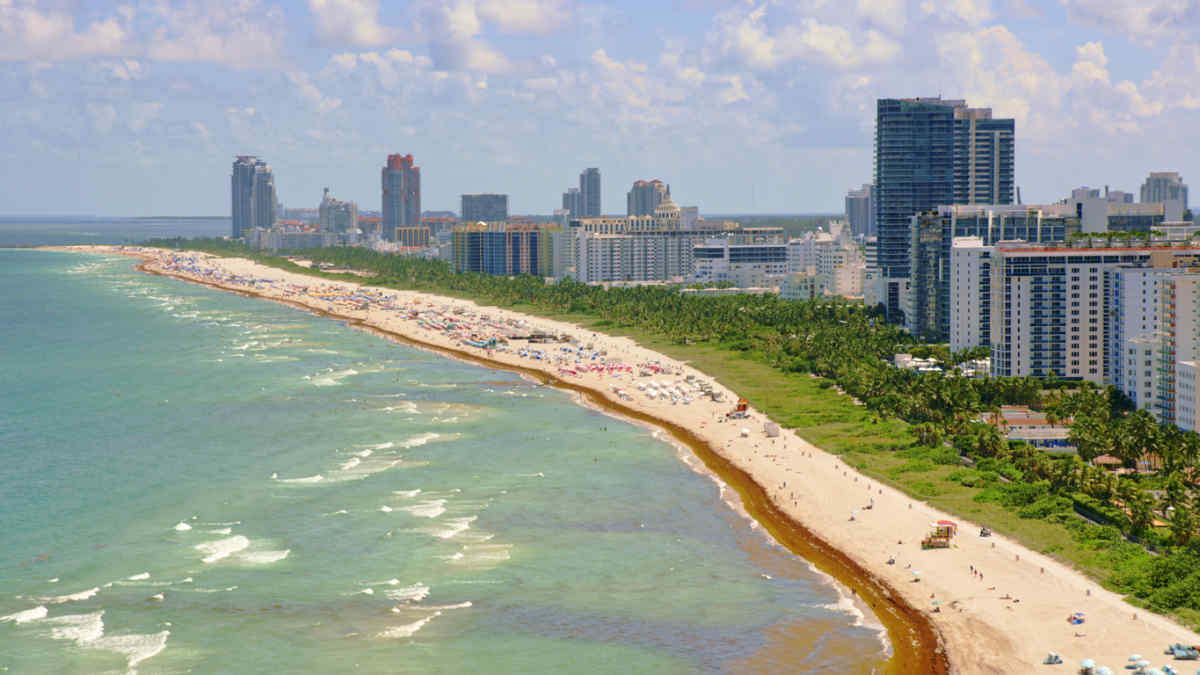

?A new Florida law designed to crack down on illegal immigration has prompted workers to leave the state and left employers short-staffed.
Manuel Lievano is chief executive officer of MCC USA Global Workforce Solutions, a company that helps organizations recruit foreign workers who come to the United States on appropriate visas. He has visited several fine dining establishments in Miami and found “they are freaking out.”
About 10 percent to 20 percent of employees are not showing up for work. That includes employees who normally work in the front of the house, in roles such as servers and hostesses, and in the back of the house, in jobs such as cleaners and dishwashers, Lievano said.
In some cases, major restaurant projects are being delayed because of a lack of workers. “Right now, companies are panicking because they don’t know what to do,” Lievano said.
And in some instances, construction projects are falling behind schedule—including two houses Lievano’s company is building for employee living quarters in Orlando—because of a lack of construction workers.
Mark Neuberger, a lawyer with Foley & Lardner LLP in Miami, has held webinars to instruct clients about the new law, SB 1718, which takes effect July 1. “It’s a concern for all employers,” that need to determine whether the law will impact their business, he said.
Employers are particularly focused on three provisions:
- The requirement for employers with more than 25 employees to use E-Verify system to check employment authorization for new employees. Employers that do not use E-Verify three or more times in two years can be fined $1,000 a day, and their business license might be suspended.
- The invalidation of driver’s licenses issued by other states that provide licenses to people who don’t have legal authorization to live or work in the U.S. About 20 states currently or soon will issue driver’s licenses to those who lack proper documentation, Neuberger said.
- The risk of being charged with human trafficking if an employer helps a worker come to the United States unlawfully. If an organization invites someone to a business conference, reimburses them for the travel expenses, and then learns they are undocumented, businesses are concerned they would then be “guilty of human trafficking,” Neuberger said.
“The law is not clear on a lot of points,” he noted. The human trafficking provision says a person has to be “inspected” by federal authorities. So human trafficking may be alleged if someone has crossed the border illegally. But if someone enters the country lawfully and their legal status has expired, the law “seems not to apply,” Neuberger said.
Many workers who don’t have authorization to live in the United States have left Florida since the law was signed by Gov. Ron DeSantis in May. DeSantis, who is now running for president, has taken aim at illegal immigration during his campaign, calling for a major crackdown on illegal immigration, including ending birthright citizenship for those born in the United States to parents who are undocumented, mass detention and deportation of those who don’t have documents, and sending the U.S. military to the Southern border.
Samuel Vilchez Santiago, Florida state director for the American Business Immigration Coalition, which is pushing for national immigration reforms, said Florida had an unemployment rate of just 2.6 percent in May, and there are only 61 job applicants for every 100 open jobs in the state. “We’re in clear need of workers.”
Florida has about 800,000 undocumented immigrants, Vilchez Santiago said, and about half work in key industries such as construction and agriculture. “We’re going to see an economic impact.”
While it’s difficult to know how many undocumented immigrants are in the United States, the Migration Policy Institute, a nonpartisan think tank, estimated that there were more than 11 million undocumented residents in the United States in 2019. Close to 7 million were employed.
Many of those who are working might be paid in cash, or they might use false documents to obtain jobs. Workers can be charged with a felony for using false identification to get a job.
Some undocumented workers have family members who are documented. If families leave Florida, it will be a major blow because “we simply don’t have any other workers,” Santiago said.
While some experts predict a significant setback to the Florida workforce, Steve Cona III, president and chief executive officer of the Gulf Coast chapter of the Associated Builders and Contractors, said commercial contractors already comply with E-Verify regulations, and so far there have not been “major disruptions” to current construction projects.
“It would be foolish to believe this law wouldn’t have an impact on many industries,” Cona said, but “I do believe the impact isn’t as dramatic as what you are seeing on social media.”
This month, the new law led to protests and businesses shutting down in solidarity with immigrants across the state.
“There’s a lot of fear among the migrant community,” Vilchez Santiago said.
Susan Ladika is a freelance writer based in Tampa, Fla.

